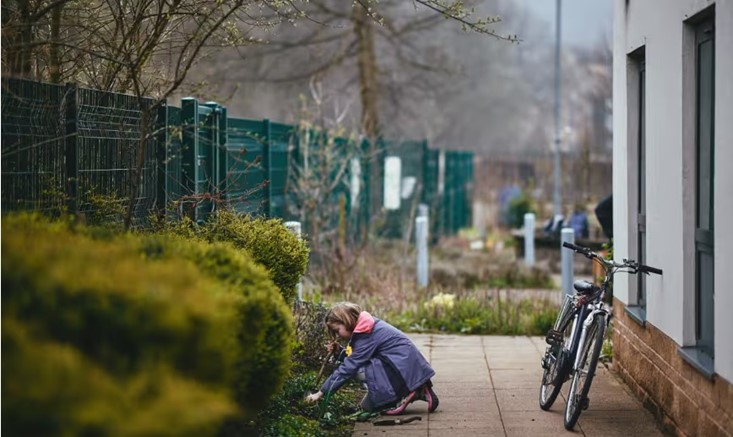
‘The System, Not People, Is the Problem': How a Radical Food Movement Grew Globally
Pam Warhurst, the founder of the guerrilla gardening movement "Incredible Edible," is clear about one thing: she's no anarchist. But she does believe that governments need to step aside and let communities take the lead. Her movement, focused on food resilience and sustainability, is based on one central belief: the system is flawed, not the people.
Warhurst's journey began 16 years ago when, after attending a conference on climate change, she felt hopeless about the future of the planet. On her train ride home, she devised a plan to empower communities to grow their own food and build local resilience. Her initiative has since flourished, with over 150 groups across the UK and similar movements in countries like France, Spain, Argentina, and Australia.
The message she advocates is straightforward: with the climate crisis, biodiversity loss, and social issues worsening, people must take matters into their own hands. "The system is broken," Warhurst says. "It's the problem, not the people."
Incredible Edible's approach is radical in its simplicity. The group engages in guerrilla gardening, planting food in public spaces and inviting everyone to take and eat it. Warhurst explains that she chose food as the focus because of its immediate, tangible impact: "Food is something we can easily organize around to demonstrate a different way of living."
The movement began in 2008 in her hometown of Todmorden, West Yorkshire, where Warhurst and a small group of friends started planting crops in public spaces. The idea caught on, gaining attention from media outlets and a viral TED Talk by Warhurst, where she urged communities to believe in themselves and take action.
Incredible Edible operates under three guiding principles: grow food locally, share skills within the community, and support the local economy. By doing so, Warhurst believes communities can foster healthier, more connected societies. "It shows that when money is tight, there's still a lot we can do if we trust the people."
One of the biggest challenges the movement faces is the resistance from authorities. Public spaces, which are meant to be owned by communities, are often tightly controlled by local governments. Warhurst has encountered countless bureaucratic hurdles, where even planting food on unused land requires tedious permission processes. "There are too many ‘noes' in the system," she says, adding that most people feel obliged to ask for permission, unlike her team in Todmorden.
To combat this, Incredible Edible advocates for a "right to grow," which would make planting on public land a right rather than a privilege. The idea extends beyond just food—it's a call for rethinking how we use land and empower citizens in a time of crisis. Warhurst envisions this concept applying to energy and housing as well.
At its core, Warhurst says, this movement is about reshaping the relationship between citizens and the state. "We're harnessing people power and rethinking land use," she asserts. "We have plenty of both, and all we need is a framework that allows people to take action, instead of fighting the system."
Warhurst acknowledges the gravity of the current global situation but remains hopeful. "I wish things were different for our planet and our country, but we are where we are. There's no use complaining—you just have to roll up your sleeves and get to work."
Through Incredible Edible, Warhurst is demonstrating that communities have the power to bring about change, even when institutions falter.